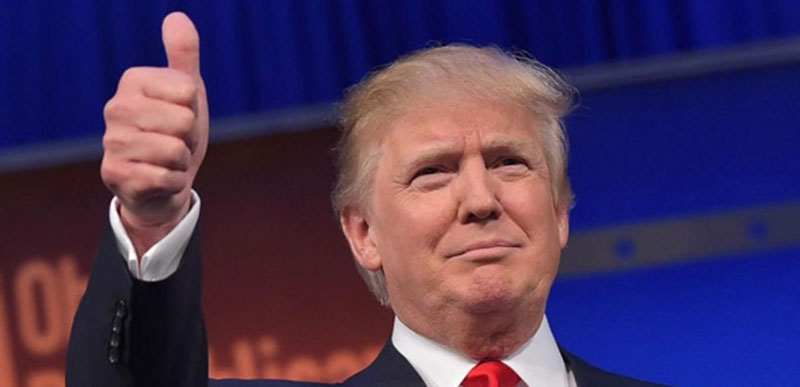The Supreme Court has decided to hear arguments on Trump’s travel ban, which isn’t really a shock considering the high profile nature of the case:
SCOTUS will review the travel ban
— SCOTUSblog (@SCOTUSblog) June 26, 2017
BREAKING: Supreme Court to hear travel ban challenge, per @PeteWilliamsNBC
— NBC News (@NBCNews) June 26, 2017
What is interesting in the news is they are removing the lower court bans on most of the order:
BREAKING: Supreme Court will review Trump travel ban, allows it to take effect in most instances.
— The Associated Press (@AP) June 26, 2017
JUST IN: Supreme Court allows some parts of travel ban to take effect; will hear arguments in October https://t.co/sIJvIkgnSJ
— ABC News Politics (@ABCPolitics) June 26, 2017
I’m still looking to see the details on what exactly remains blocked. So far this is all I know:
The Supreme Court partially revives Trump administration's travel ban https://t.co/VW007767qT pic.twitter.com/kML6OKZ82S
— Bloomberg (@business) June 26, 2017
I’ll update more when I have it…
UPDATE:
Ok here’s more…
#SCOTUS says President Trump's travel ban can go into effect for foreigners who lack a "bona fide relationship" with someone in the U.S. pic.twitter.com/LwbWKBrLUE
— Brad Heath (@bradheath) June 26, 2017
NBC News explains more:
In a "partial victory" for the Trump administration, SCOTUS decides to hear case on Trump travel ban. https://t.co/4TQhNa6eX0
— MSNBC (@MSNBC) June 26, 2017
UPDATE:
Here’s the full dissent of Thomas, Alito, and Gorsuch:
JUSTICE THOMAS, with whom JUSTICE ALITO and
JUSTICE GORSUCH join, concurring in part and dissenting
in part.I agree with the Court that the preliminary injunctions
entered in these cases should be stayed, although I would
stay them in full. The decision whether to stay the injunctions
is committed to our discretion, ante, at 9–10, but our
discretion must be “guided by sound legal principles,”
Nken v. Holder, 556 U. S. 418, 434 (2009) (internal quotation
marks omitted). The two “most critical” factors we
must consider in deciding whether to grant a stay are
“(1) whether the stay applicant has made a strong showing
that [it] is likely to succeed on the merits” and
“(2) whether the applicant will be irreparably injured
absent a stay.” Ibid. (internal quotation marks omitted).
Where a party seeks a stay pending certiorari, as here, the
applicant satisfies the first factor only if it can show both
“a reasonable probability that certiorari will be granted”
and “a significant possibility that the judgment below will
be reversed.” Barnes v. E-Systems, Inc. Group Hospital
Medical & Surgical Ins. Plan, 501 U. S. 1301, 1302 (1991)
(Scalia, J., in chambers). When we determine that those
critical factors are satisfied, we must “balance the equities”
by “explor[ing] the relative harms to applicant and
respondent, as well as the interests of the public at large.”
Id., at 1304–1305 (internal quotation marks omitted); cf.
Nken, supra, at 435 (noting that the factors of “assessing
the harm to the opposing party and weighing the public
interest” “merge when the Government is the opposing
party”).The Government has satisfied the standard for issuing a
stay pending certiorari. We have, of course, decided to
grant certiorari. See ante, at 8–9. And I agree with the
Court’s implicit conclusion that the Government has made
a strong showing that it is likely to succeed on the merits—that
is, that the judgments below will be reversed.
The Government has also established that failure to stay
the injunctions will cause irreparable harm by interfering
with its “compelling need to provide for the Nation’s security.”
Ante, at 13. Finally, weighing the Government’s
interest in preserving national security against the hardships
caused to respondents by temporary denials of entry
into the country, the balance of the equities favors the
Government. I would thus grant the Government’s applications
for a stay in their entirety.Reasonable minds may disagree on where the balance of
equities lies as between the Government and respondents
in these cases. It would have been reasonable, perhaps,
for the Court to have left the injunctions in place only as
to respondents themselves. But the Court takes the addi-
tional step of keeping the injunctions in place with regard
to an unidentified, unnamed group of foreign nationals
abroad. No class has been certified, and neither party
asks for the scope of relief that the Court today provides.
“[I]njunctive relief should be no more burdensome to the
defendant than necessary to provide complete relief to the
plaintiffs” in the case, Califano v. Yamasaki, 442 U. S.
682, 702 (1979) (emphasis added), because a court’s role is
“to provide relief ” only “to claimants . . . who have suffered,
or will imminently suffer, actual harm.” Lewis v.
Casey, 518 U. S. 343, 349 (1996). In contrast, it is the role
of the “political branches” to “shape the institutions of
government in such fashion as to comply with the laws
and the Constitution.” Ibid.Moreover, I fear that the Court’s remedy will prove
unworkable. Today’s compromise will burden executive
officials with the task of deciding—on peril of contempt—
whether individuals from the six affected nations who
wish to enter the United States have a sufficient connection
to a person or entity in this country. See ante, at 11–
12. The compromise also will invite a flood of litigation
until this case is finally resolved on the merits, as parties
and courts struggle to determine what exactly constitutes
a “bona fide relationship,” who precisely has a “credible
claim” to that relationship, and whether the claimed
relationship was formed “simply to avoid §2(c)” of Executive
Order No. 13780, ante, at 11, 12. And litigation of the
factual and legal issues that are likely to arise will presumably
be directed to the two District Courts whose
initial orders in these cases this Court has now—
unanimously—found sufficiently questionable to be stayed
as to the vast majority of the people potentially affected.

